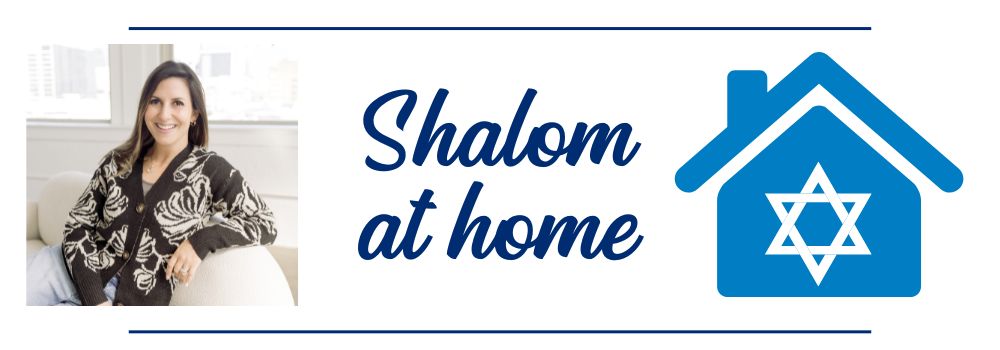While attending the Hyman Brand Hebrew Academy, one of my elementary school Jewish Studies teachers tasked us with memorizing a very significant pasuk (line from the Torah) from the Torah portion, Parshat Lech Lecha.
I remember staying up late (likely because I saved this assignment for the night before as many kids do), fumbling over the words, trying to get them down just right so that I could recall them for when it would be my turn to recite them before my teacher.
This pasuk is as follows: “G-d said to Avram, ‘Go forth from your native land and from your father’s house to the land that I will show you.’”
Variations of this famous pasuk, and the one that follows, have also been sung for decades from countless campers in the beloved song “L’chi Lach.”
What could be so poignant about this very pasuk that has woven itself through generations of our existence as Jews across that world, that it often stands out amongst the more-than 5,000 other pasukim in the Torah?
Allow me to segue for just a minute. I’m a mom to three inquisitive kids. They ask questions; I don’t always have answers. Uncertainty doesn’t always sit well with kids — or adults! But my goal of developing and fostering open communication with my children and building confidence is that I share with them that I, too, experience uncertainty. Just because my child may see my husband and I confidently moving (or, let’s be honest, fumbling) about our days and weeks playing the role of “grown-ups,” doesn’t mean that grownups always know what lies ahead.
“Even grown ups have to face uncertainty,” I reassure them. For instance, as I write this, just days away from our presidential election, I am faced with an immense amount of uncertainty in what lies ahead.
As adults, we learn to take action with the information we have and lean into our instincts. As a mental health provider, I like to encourage the use of scripts with my clients. Together we may craft language that helps become familiar for an individual to rely on when we don’t yet have a playbook for this moment. It could sound something like, “What do I know with certainty?” “What skills do I possess that have gotten me through a situation like this before?” “How can my faith guide me through this uncertainty with peacefulness and strength?”
The ultimate goal is validating the uncertainty they share and reminding them of their ability to move forward, even with uncertainty.
Over the years, many authors and spokespeople have coined variations of this concept into their own mantras: to “do it scared,” they preach, encouraging folks to move forward and take action, despite fear.
Imagine if we let fear dictate our actions? Imagine if Avram let fear dictate his actions?
Far too often, uncertainty can prevent one from taking a step forward into new opportunities, keeping one stuck in a “freeze” state — unable to make a decision. If you’re a parent or work with children, you may find it difficult when supporting a child to do something outside their comfort zone. Naturally, as adults, we want to protect them, and we may want to validate that sense of uncertainty when we notice it. “I see you’re scared, or that you don’t feel so sure…” we might recognize, eventually conceding in a choice to preserve that comfortability.
But does that help foster growth? Does that lead to new opportunities? Does that build confidence?
G-d, not so cryptically, even instructs Avram “…[to go] from your father’s house,” no-doubt a quintessential place of comfort and familiarity for Avram. It’s as if G-d could anticipate any hesitation that could be brewing within Avram, and in a fatherly way, validates this challenging ask of him. “Avram, I see you. I’m asking a lot of you, and I know you can do hard things.” If I could have needle-pointed Avram a cloak thousands of years ago, or Cricuted him a blanket for his donkey, it most definitely would’ve read the words “We can do the hard things.”
And this is precisely what we, as Jews, as Jewish parents and educators, continue to instill in our children and in our homes and as a nation, to this day. Fostering trust comes from hearing someone’s voice validate, “This is scary, and we’ve got this,” and so that others will follow while you bravely lean into this uncertainty. But while there may be “uncertainty,” this has been the tune of our song for thousands of years. It requires us leaning into the uncertainty and trusting in Hashem, our partners and caregivers, because we have known as Jews for generations that growth comes from taking action.
Shabbat Shalom.
Kaley Wajcman, MA, ATR-BC, is an art therapist and founder of Creative Pathways LLC., an art therapy practice in Leawood, Kansas.
Like what you just read? Consider supporting The Kansas City Jewish Chronicle, our community's only Jewish news source for over 105 years, by making a donation or starting a subscription today!



